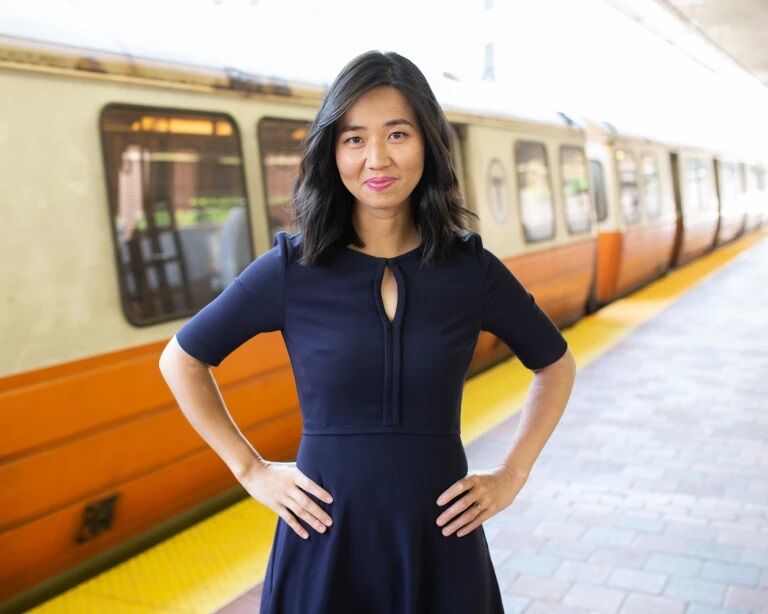On Tuesday, Nov. 2, Boston elected progressive candidate Michelle Wu as the city’s next mayor. Wu will be the first elected female and person of color to serve as mayor in the city of Boston.
Following the preliminary election, Wu ran against Annissa Essaibi George, a more moderate candidate. Wu garnered 64.2 percent of the vote, while Essaibi George received 35.8 percent.
“From every corner of our city, Boston has spoken. We are ready to meet this moment. We are ready to become a Boston for everyone,” said Wu to her supporters on Tuesday night. “I want to be clear, it wasn’t my vision on the ballot, it was ours, together.”
“I want to offer a great big congratulations to Michelle Wu,” said Essaibi George to her supporters following her concession of the race. “She’s the first woman and first Asian American elected to be mayor of Boston. I know this is no small feat.”
Throughout her campaign, Wu has run on a progressive platform. She has advocated for a Green New Deal for Boston; for rent control and stabilization; for abolishing the Boston Planning and Development Agency; and for a fare-free T system.
During her campaign, Wu earned the support of other progressives such as Representative Ayanna Pressley and Senator Ed Markey. Wu also had the support of Senator Elizabeth Warren, who had been one of Wu’s professors during her time at Harvard Law School. Wu also worked on Warren’s first senate campaign in 2012, and refers to Warren as a mentor.
Compared to Wu, Essaibi George ran in support of more moderate ideals. Essaibi George was not in favor of Wu’s rent control plans, and expressed a desire to add more officers to Boston’s police force.
Throughout the election, Wu and Essaibi George competed for voters across Boston’s diverse neighborhoods.
Wu won many majority-Black precincts and, according to a tweet posted by a staff member of the Dorchester Reporter, won former mayor Marty Walsh’s home precinct in Lower Mills Library, Dorchester.
Wu and Essaibi George also both competed for the support of Boston’s unions.
1199 SEIU United Healthcare Workers East and the Massachusetts Bay Transportation Authority unions were both in support of Wu, while Essaibi George gained support from unions such as the Boston Firefighters, Boston EMS and the Massachusetts Nurses Association.
Wu’s victory is historic for reasons other than her gender and race.
Wu is among few of the city’s elected mayors who were not born and raised in Boston. At 36, Wu is the youngest mayor to be elected in Boston in close to 100 years. Additionally, Wu is the first mother to serve in the mayoral role.
Michelle Wu will take office on Nov. 16, and she will succeed Acting Mayor Kim Janey. Janey became acting mayor after former mayor Marty Walsh was appointed to Joe Biden’s cabinet as the president’s Secretary of Labor in January.
Janey ran for mayor as well, however did not make it past the preliminary election. Following her defeat, Janey endorsed Wu.
Michelle Wu is the child of Taiwanese immigrants, and was born in Chicago shortly after her parents immigrated to the U.S. Wu was elected to the Boston City Council in 2013 when she was 28 years old. In 2016, she was unanimously elected City Council President, making her the first woman of color to serve in that role.

